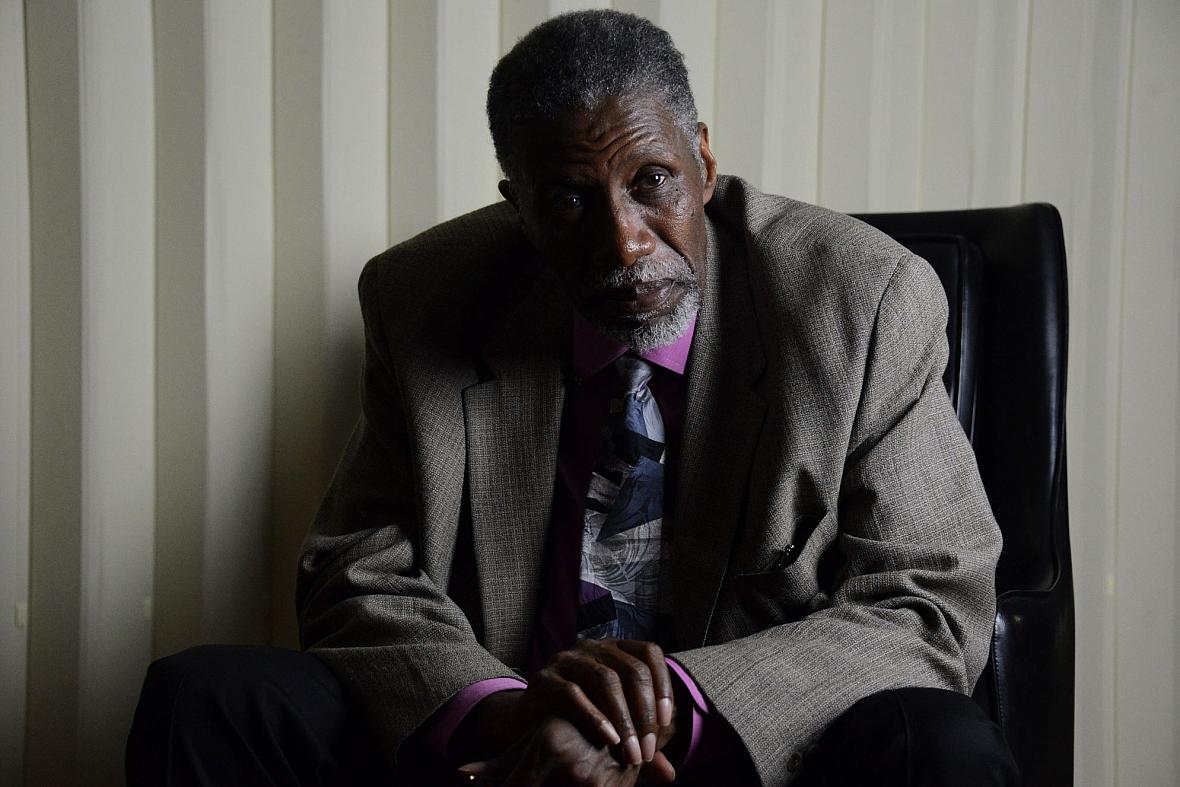Why Wilford Payne is known as the Johnny Appleseed of local health centers
Sean D. Hamill wrote this report for the Pittsburgh Post-Gazette as a 2013 National Health Journalism Fellow and Dennis Hunt Journalism Fund Grantee. Other portions of his project can be found here:
Access to specialists out of reach for many in Pittsburgh region
Despite Affordable Care Act, free clinic still in demand
Poor Health: A frayed safety net

Lake Fong/Post-Gazette
When a health center serving the poor in New Kensington was having management and financial trouble in 2008, state Sen. Jim Ferlo knew the man to call for help.
“The only person I could think of who could go up there, trouble-shoot, have the respect of everyone involved and know the intricacies of the regulations and really help up there was Wilford Payne,” Mr. Ferlo said.
When Jeannette South-Paul, a nationally known advocate for the underserved, came to the University of Pittsburgh in 2001 and wanted to establish a federally qualified health center, she sought out the person who knew more about them than anyone in town.
“Will Payne mentored me through that,” she said.
And when John Laeng, CEO of the largest network of federally qualified health centers in the state, needed a new board member four years ago, he had an easy choice to make, too.
“He’s kind of the father of FQHCs around here,” Mr. Laeng said.
Mr. Payne, 69, runs Primary Care Health Network Inc., which has 11 health centers in some of Allegheny County’s poorest towns and neighborhoods.
“He’s like a Johnny Appleseed, helping spread health centers,” Mr. Ferlo said.
When he was recruited from a clinic for miners in Fairmont, W.Va., in 1977 to run what was then the only federal health center in Pittsburgh, Mr. Payne thought it would be a short-term stay to put the health center on firmer financial footing. It’s ended up being 37 years, and Pittsburgh is now home.
What was then known as the Homewood-Brushton Neighborhood Health Center had opened in 1968, at a time when the Civil Rights movement led to a flurry of free clinics opening around the country in poor neighborhoods.
VIDEO: Spotlight falls on access issues, changes in health care
The health center, later renamed the Alma Illery Medical Center, quickly became the headquarters of the largest network of federally qualified health centers in Allegheny County — and Mr. Payne stayed to oversee its growth.
Born in Youngstown, Ohio, Mr. Payne is the son of two community leaders: His father, Walter, a furniture production worker, was a Boy Scout leader who also helped build a community center in town. He died in 2001. His mother, Mildred, 92, who later managed local public housing, was the first African-American to head the local PTA.
“They left a legacy that’s very hard to fill,” Mr. Payne said.
After high school, he served four years in the Air Force. The GI Bill helped pay for his studies as a sociology major at Youngstown State University.
While there, he got his first taste of working with the health safety net when he volunteered through the Model Cities program. The experience led him to get his master’s degree in hospital administration at Ohio State University and his first job doing an HMO feasibility study at the miners’ clinic before he took his job in Pittsburgh.
Since he’s lived through all the changes in the federal health center system, he knows its history through and through, including increased Medicaid reimbursements starting in 1991 that spurred growth of the centers and the requirement put in place two years ago mandating electronic health records.
The most sweeping change, though, has been the growing reliance by the poor on the safety net health centers and free clinics. In this area, it’s gone from one in Allegheny County in 1977 to 22 now.
“Hospitals used to provide more care to the poor,” he said. “Now, they rely on us to care for them if they can.”
Primary Care served nearly 21,000 patients in 2012, the last year federal data is available; a third were uninsured; 42 percent were on Medicaid.
Still, he’s facing the greatest challenges of his career. The electronic health record requirement is expensive, he said. The need for care is greater than ever.
At the same time, Mr. Payne, who has been dealing with his own health problems, and his board of directors are looking for someone to succeed him as executive director. “It’s been hard,” he said. “No one wants my job.”
He is also looking to make perhaps the biggest change in Primary Care’s history.
“I’m having conversations now with UPMC right now” about a partnership of some sort, he said. “I initiated it. And they were receptive.”
Noting the location of UPMC’s hospitals, which are close to his clinics, he said: “Who else would I approach? I probably care for more of their patients and keep them out of the emergency room than anyone else.”
UPMC would not provide details of the conversation, but confirmed it was talking with Mr. Payne.
About a decade ago, UPMC asked Mr. Payne to take over three of its neighborhood health centers located in poor areas — Braddock, Duquesne and Pittsburgh’s Hazelwood neighborhood, which he did.
If Primary and UPMC forge a partnership, it would be a big change.
But after 37 years, Mr. Payne says if nothing else: “I’m used to change.”
Photo Credit: Lake Fong/Post-Gazette
This article was originally posted in the Pittsburgh Post-Gazette.

